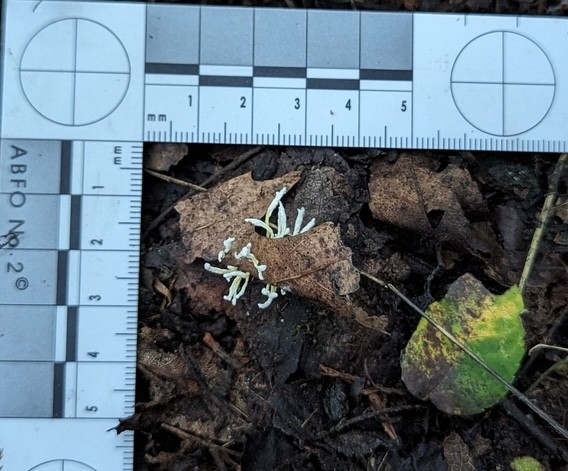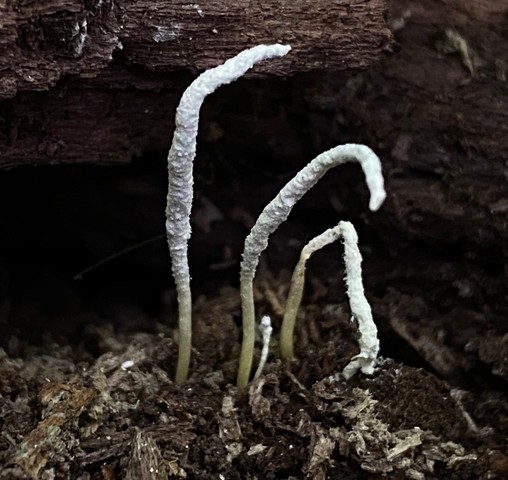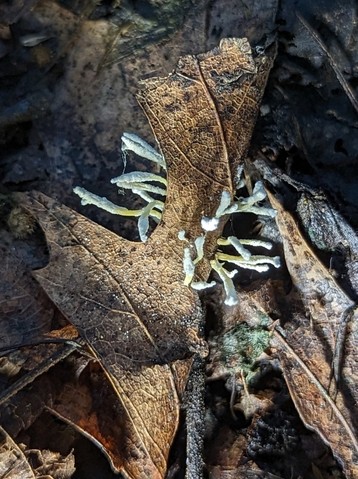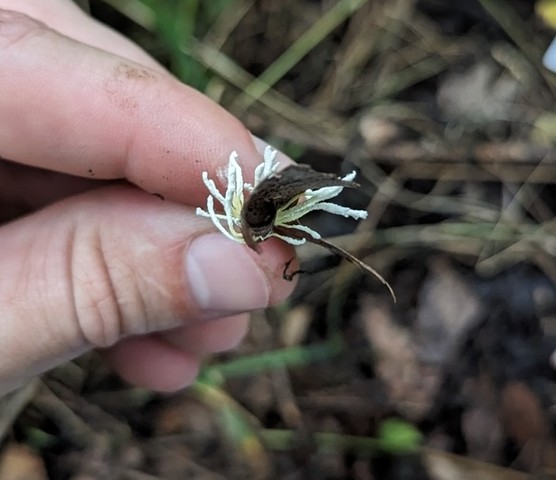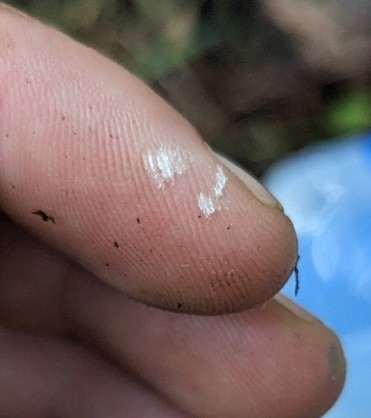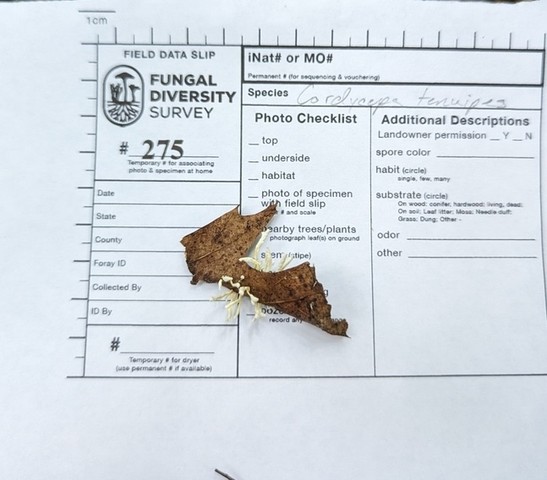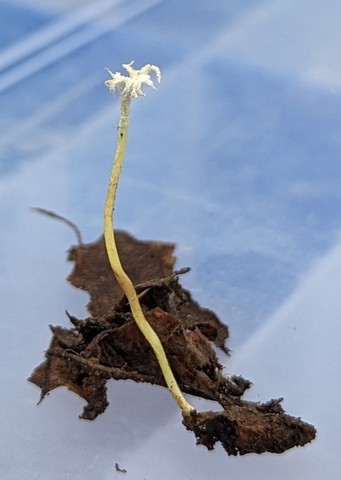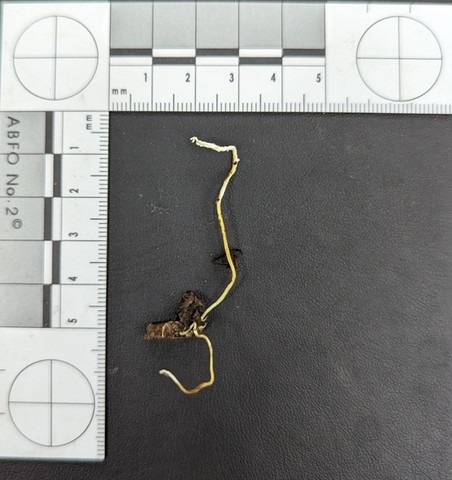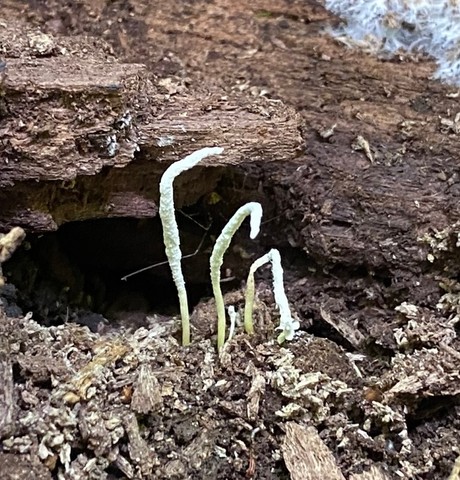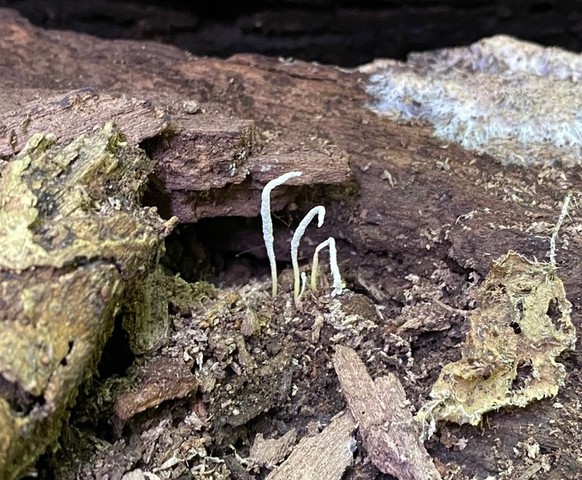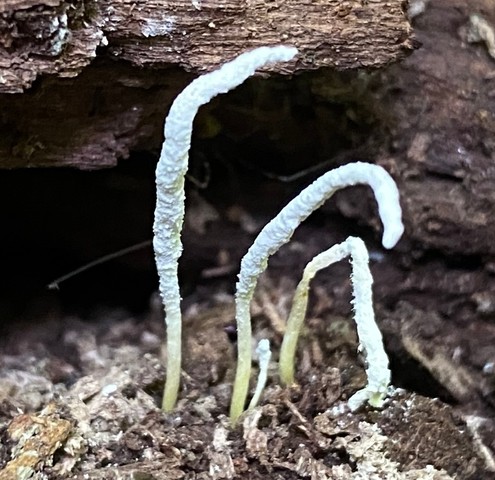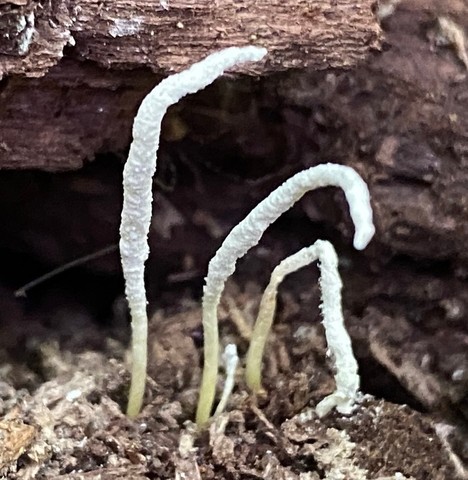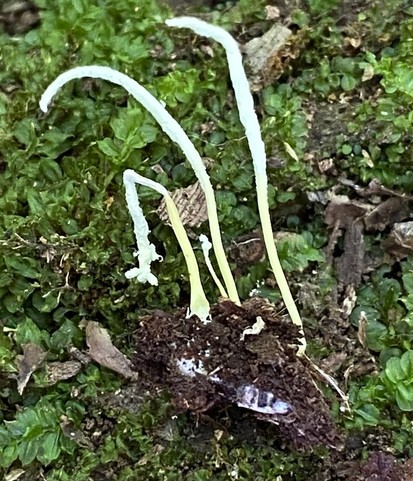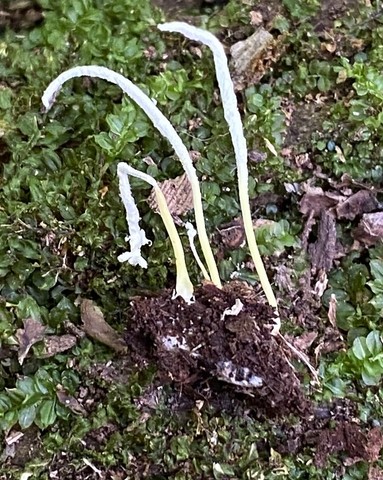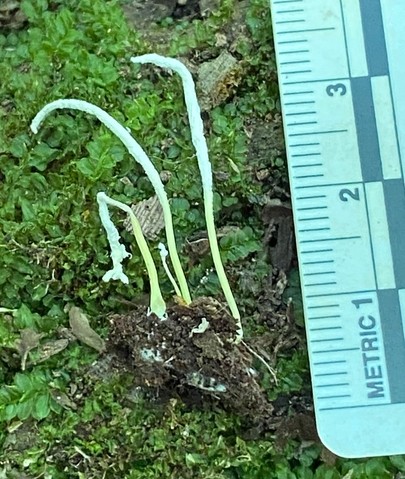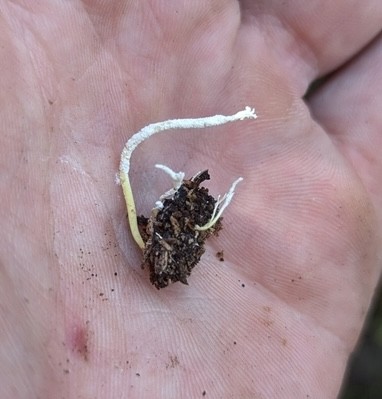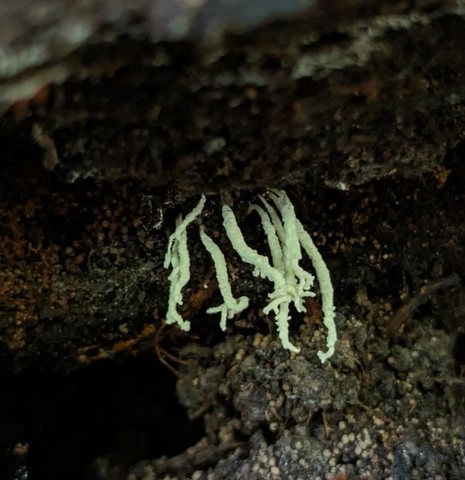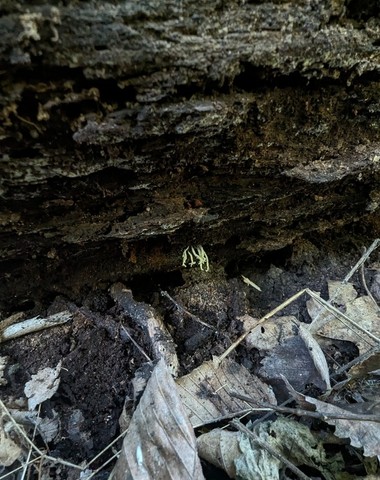Slinder-Footed Cordyceps
Cordyceps tenuipes
Life > Fungi > Ascomycota > Pezizomycotina > Sordariomycetes > Hypocreomycetidae > Hypocreales > Cordycipitaceae > Cordyceps
Description
The Slinder-Footed Cordyceps (Cordyceps tenuipes) is an entomopathogenic mushroom that grows on cocooned month and butterfly pupae in the order Lepidoptera. The fruiting bodies grow in damp, shady wooded areas in the summer. It can be found eastern North America and can also be found in Mexico, China, and Australia.
The host is sometimes rolled up in a leaf on the forest floor to pupate. The fungus infects the pupa, consumes its body, then grows spore-producing structures (stroma) with white powdery tips out of the leaf "burrito". These fruiting bodies offer a noticeable neon-yellow white color contrast amidst the dark leaf duff for keen-eyed mushroom hunters.
Observations
August 2nd, 2023 Indian Cave State Park
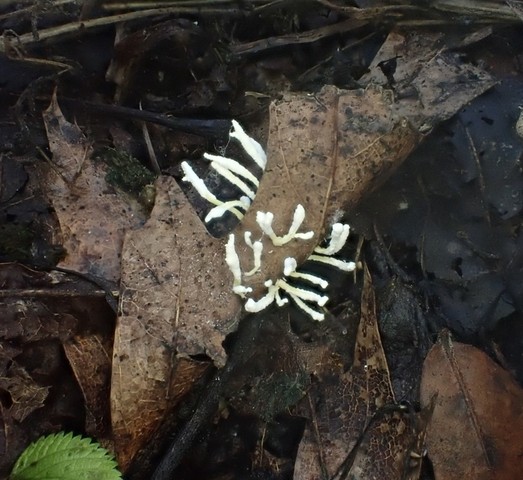
#275
- Growing from unknown insect host curled in oak leaf in low/moist riparian area, just below mixed oak/hickory woodland slope.
- Several light tan stroma with white powdery tips that easily rub off on contact.
-2nd and 3rd specimens found among oak leaf litter roughly 10 meters away.
GTCGTAACAAGGTCTCCGTTGGTGAACCAGCGGAGGGATCATTACCAGAGTTTTACAACTCCCAACCCTTCTGTGAACCTACCCATAGTTGCTTCGGCGGACCCGCCCCAGCGTCCGGACGGCCCAGCGCCGGCCCGGGACCTGGACCCAGGCGGCCGCCGGGGACCACGCAACCCTGTATCTGTCAGCCTCTCTGAATCCGCCGCAAGGCAACACAAACGAATCAAAACTTTCAACAACGGATCTCTTGGTTCTGGCATCGATGAAGAACGCAGCGAAATGCGATACGTAATGTGAATTGCAGAATTCCGTGAATCATCGAATCTTTGAACGCACATTGCGCCCGCCAGCATTCTGGCGGGCATGCCTGTTCGAGCGTCATTTCAACCCTCGACGTCCCCCGGGACGTCGGCCTTGGGGACCGGCAGCACCCCGCCGGCCCTGAAATGGAGTGGCGGCCCGTCCGCGGCGACCTCTGCGCAGTACAAGCACTCGCACCGGGAACCCGACGCGGCCCGCCGTGAAACCCCCAACCTCTGAACGTTGACCTCGGATCAGGTAGGACTACCCGCTGAACTTView MycoMap DNA Results
September 24th, 2024 Indian Cave State Park
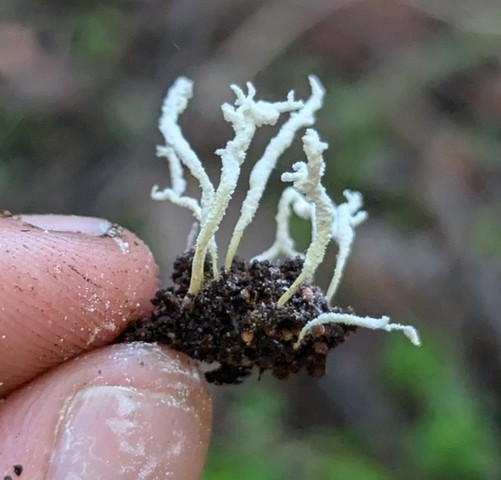
Not Collected. Both growing in small lepidopteran pupa underneath well rotted log in mixed Oak woodland draw.
References
Kepler, R.M., Luangsa-ard, J.J., Hywel-Jones, N.L. et al. A phylogenetically-based nomenclature for Cordycipitaceae (Hypocreales). IMA Fungus 8, 335–353 (2017). https://doi.org/10.5598/imafungus.2017.08.02.08
Lee, K. M., Hong, I. P., Nam, S. H., Sung, G. B., & Bae, Y. H. (2008). The cultural characteristics and antibacterial activities of Cordyceps militaris and Paecilomyces tenuipes. Korean journal of applied entomology, 47(4), 479-486. https://koreascience.kr/article/JAKO200805441023179.pdf
Zha, L. S., Wen, T. C., Huang, S. K., Boonmee, S., & Eungwanichayapant, P. D. (2019). Taxonomy and biology of Cordyceps qingchengensis sp. nov. and its allies. Phytotaxa, 416(1), 14-24. https://phytotaxa.mapress.com/pt/article/view/35913/30762
Created February 21, 2026 at 10:41 AM
